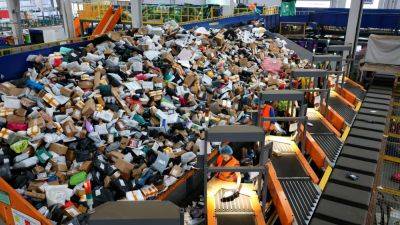Why I paid $95 to recycle a mattress — and you might, too
I paid $95 to recycle a mattress.
It may sound odd, silly even, to pay so much to dispose of a run-of-the-mill household item.
But the economics of mattress recycling illustrate why it can be difficult — and costly — to be an eco-friendly consumer in the U.S.
Americans discard about 15 million to 20 million mattresses each year, according to the Mattress Recycling Council. That's an average of about 50,000 per day.
Most end up in a landfill, experts said.
Mattresses are «one of the hardest things to recycle,» said Alicia Marseille, a sustainability and circular economy expert at Arizona State University.
«It's a massive waste stream,» she said.
My mattress — a queen-sized hand-me-down from family and probably close to two decades old — was in desperate need of replacement. The average mattress has a lifespan of about 14 years, from manufacture to consumer disposal, according to MRC.
But what to do with it?
I live in Brooklyn, where residents can dispose of a mattress for free as part of routine trash pickup.
As someone who meticulously tries to cut waste in everyday life — avoiding single-use plastics, composting food scraps — it was painful to think of mine wasting away in a landfill.
«If you put your mattress in a landfill, it'll probably be there for hundreds of years, just sitting there,» said Meg Romero, the recycling and litter control superintendent for Charles County, Maryland.
Surely, I can find a new home for it instead, I thought.
Wrong.
After two weeks of unsuccessful dispatches to local homeless shelters, organizations like The Salvation Army and Goodwill, and community forums like Buy Nothing and The Freecycle Network, I'd exhausted my patience for a free-giveaway option.
Individuals who donate a mattress
Read more on cnbc.com
 cnbc.com
cnbc.com




















